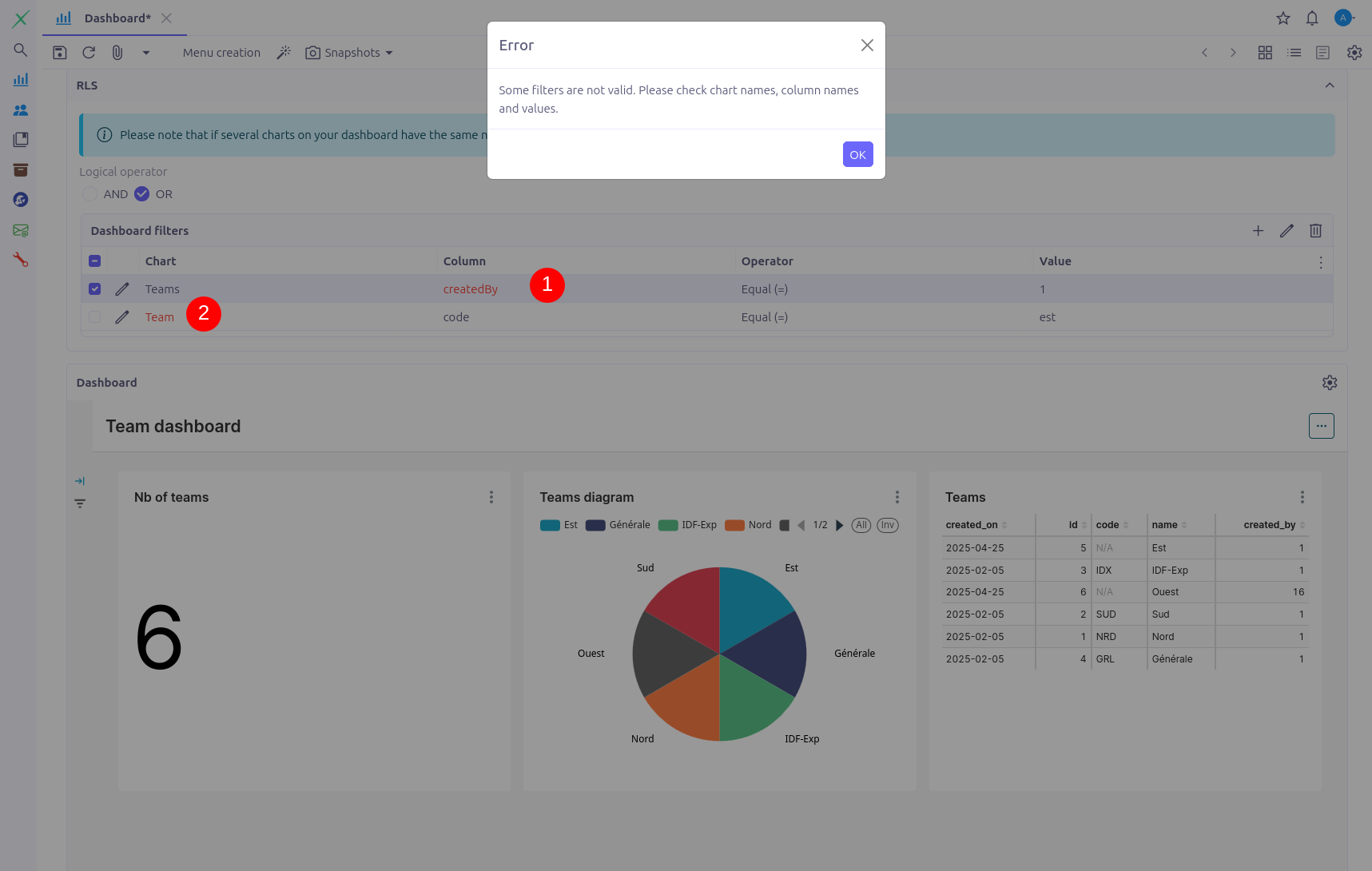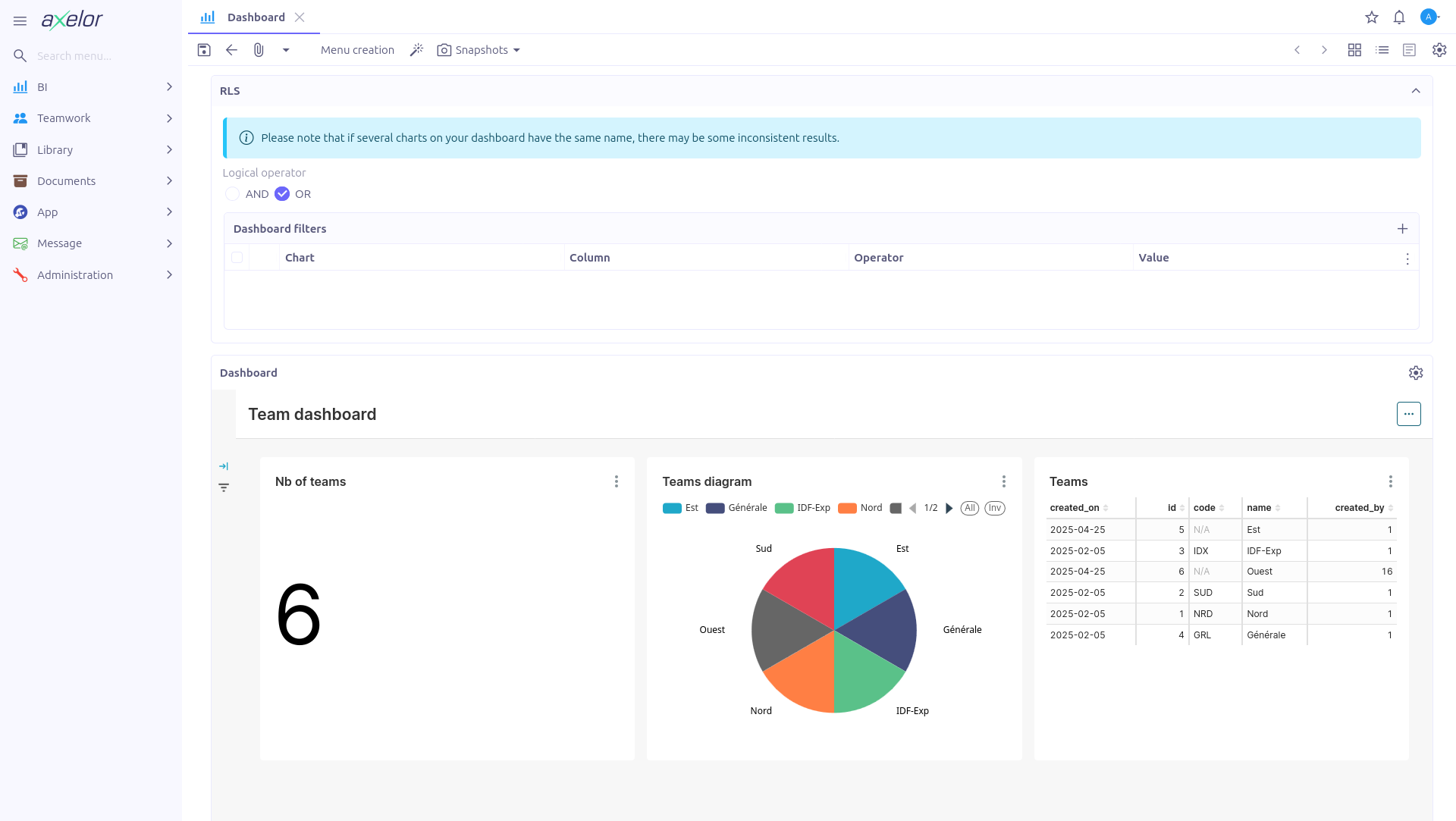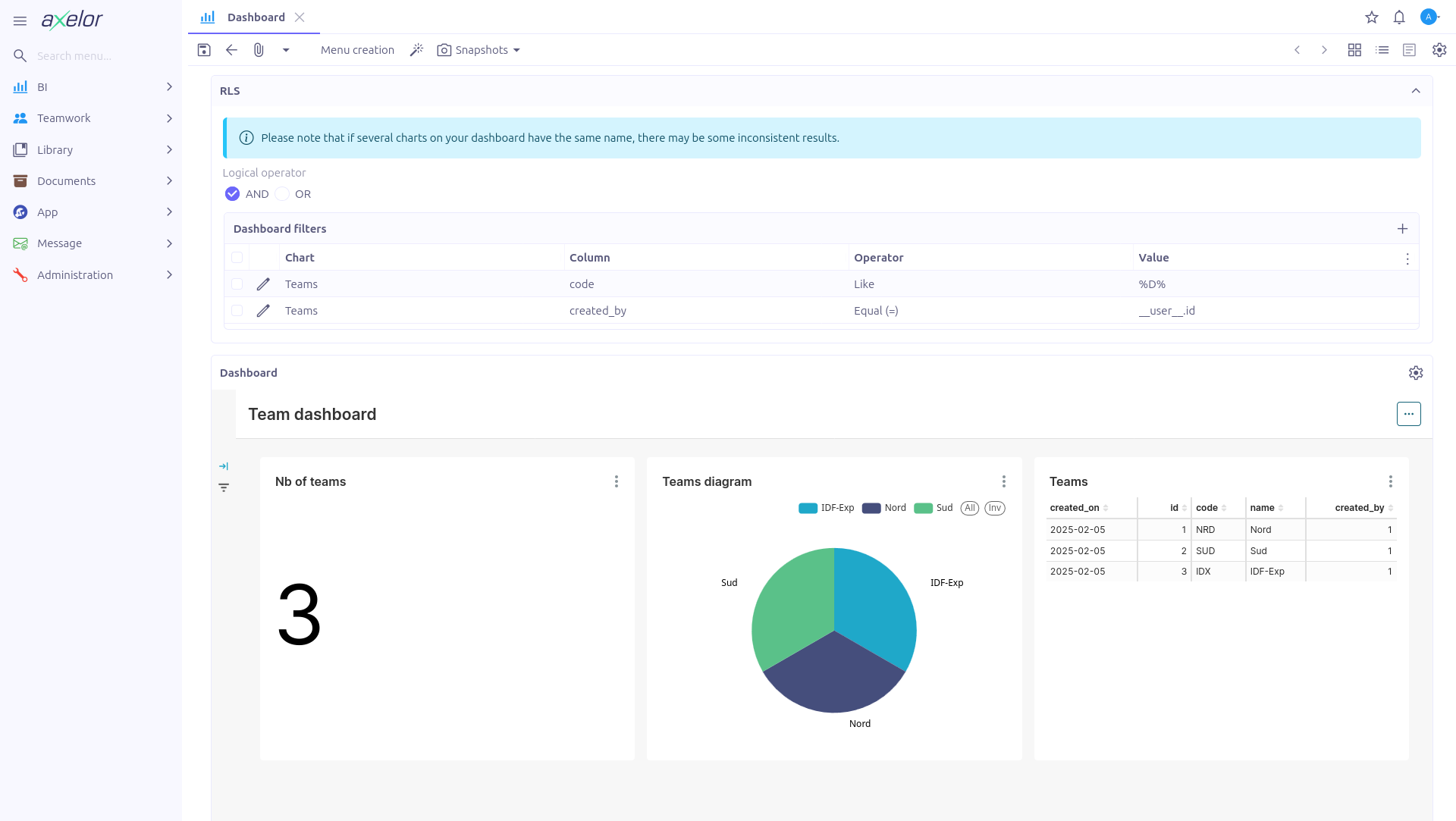Row Level Security Filters (RLS)
-
Row Level Security is a superset feature used to filter data on charts based on predefined conditions.
-
It is made of two elements, Logical operator and Dashboard filters.

Logical operator
It allows combining a set of filters with one of the logical operators: AND or OR.
For example, if a list of filters is added with condition_one, condition_two,
condition_three… and OR is selected, the resulting query would be:
condition_one OR condition_two OR condition_threeDashboard filters
Dashboard filters represent the list of filters to apply on the charts of the dashboard. The created filters are translated to SQL queries.
To create a valid filter, fill the four columns:
-
Name: The name of the chart, as it is written on BI studio. -
Column: The name of the column in the dataset used to create the chart. -
Operator: A dropdown list containing a set of operations available to create the filter. -
Value: The value your filter is based on.
Column
The name of the column within the dataset columns.
It appears in the chart itself or on the left side of the chart on BI studio.
Value
The value can be empty, static, dynamic or list.
-
Empty: When checking the nullability of a field, or if it is a boolean.
-
Static: Can be a number or string.
-
List: Usually when working with
INandNOT INoperators, the value should be a list of elements separated with a comma (,). -
Dynamic: The value can be a groovy expression, and it can contain the built-in variables,
-
__user__: get the current user’s properties -
__parent__: read properties of the current model (mainly useful when extending dashboards in dashlet) -
__date__: current date -
__time__: current time -
__datetime__: current date time
-
Notes
-
Filters are applied in the SQL query with a
WHEREclause
WHERE column_name :operator: value
-
If any of the chart name, field or value is not valid, the module will display some errors and the invalid fields will be displayed in red.

-
The column name is not valid, it should be created_by instead of createdBy.
-
The chart name is not valid as Team is not present in the dashboard. The possible values there are: Nb of teams, Teams diagram or Teams.
-
-
The filters with a value containing
__parent__are not applied directly on the dashboard but only when it is extended in a specific page as apanel-dashlet. -
In reality, the filters are applied on the datasets used by the charts. So if you have several charts relying on the same dataset, the filters will apply on all the charts based on the underlying dataset of the chosen chart (see example below).
| When you define some filters on a dashboard, it’s strongly recommended to avoid having several charts with the same name on a dashboard, especially if they don’t rely on the same dataset. Otherwise, the filters defined on the duplicated chart name might be applied on the wrong dataset. |

